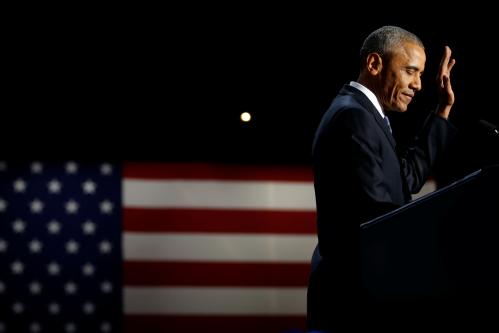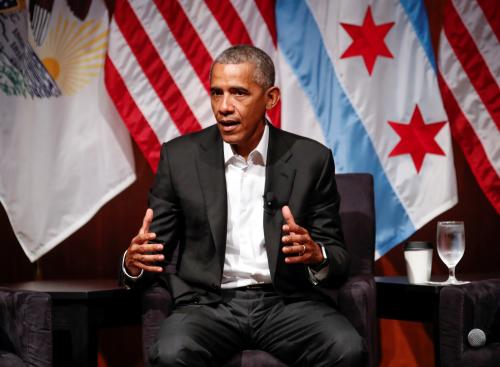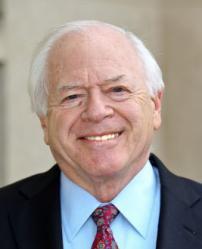In the last week, President Trump has faced a judicial setback, a close shave on one cabinet nominee’s confirmation vote, and the withdrawal of another nominee. His national security adviser resigned under a cloud of unanswered questions. Turmoil and uncertainty are part of any presidential transition, particularly when power switches between parties. How does Trump’s transition compare so far? He might take some comfort in recalling how Barack Obama fared in the first 100 days of his presidency. Here are some relevant 2009 media reports.
The polarization problem
“His (Obama’s) decisive [2008] victory capped a remarkable run for Democrats, who now control the House and Senate….Democratic triumphs of recent election cycles left a listless, confused GOP that has reacted by shifting to the right.” (Alex Leary, St. Petersburg Times, December 23, 2009)
“Yet 2009, which opened with such soaring hope, ended with the kind of ‘partisan food fight’ that Obama promised to avoid. On the day before Christmas, Senate Democrats approved a sweeping overhaul of the nation’s health-care system without getting a single Republican vote.
“As might be expected, each side blames the other for the partisan divide.” (Jack Torry, Columbus Dispatch, January 4, 2010)
Cabinet setbacks and lobbyists, too
“The withdrawals yesterday [February 3, 2009] of former Senate Majority Leader Tom Daschle to be Health and Human Services Secretary and Nancy Killefer to be his chief oversight officer, were Obama’s biggest setbacks as president. In both cases, the nominations were scuttled after the candidates admitted tax mistakes.
“The incidents followed the Senate confirmation of Treasury Secretary Timothy Geithner last week by the closest margin since World War II because of his failure to pay almost $50,000 in taxes.
“The nominees’ tax gaffes are an added hurdle for the Obama administration’s pledge to clean up Washington and reclaim it from lobbyists. That commitment already has been tested by his nomination of William Lynn, a former top lobbyist for defense contractor Raytheon Co., to be deputy defense secretary.
“Former IRS Commissioner Margaret Milner Richardson said the tax problems indicated the people in charge of vetting nominees weren’t asking the right questions. (Ryan J. Donmoyer and Julianna Goldman, Bloomberg.com, February 4, 2009)
“At the White House, Obama stood in the grand foyer to announce his nomination of Sen. Judd Gregg (R-N.H.) to become commerce secretary, a vacancy created after his first pick, New Mexico Gov. Bill Richardson, withdrew amid a scandal investigation.
“A daily Rasmussen Reports poll of presidential approval on Tuesday showed 37 percent of the nation’s voters strongly approved of Obama’s leadership, the lowest rating since Election Day.” (Jeanne Cummings, Politico.com, February 3, 2009)
“Another big plank fell out of Barack Obama’s bipartisanship bridge Thursday when Republican Sen. Judd Gregg withdrew as the Commerce Secretary nominee, citing differences with the White House on the massive economic stimulus package moving through Congress.” (Chuck Raasch, Gannett News Service, February 13, 2009)
“In President Barack Obama’s Cabinet, there is a Nobel Prize winner, a former mayor and a veteran CIA agent….This constellation of talent, however, has something of a black hole. There is virtually no one on Obama’s team with outsized achievements or a high-profile reputation earned in the world of business.” (Eamon Javers, Politico.com, February 20, 2009)
Experience and style under scrutiny
“Presidents do not like to admit mistakes. They see it as a sign of weakness. That is why it was noteworthy that Barack Obama publicly admitted making a mistake only two weeks after taking power.
“Obama’s slang admission that ‘I screwed up’ in pushing ahead with Tom Daschle as U.S. health care chief…was a sign of the new style he brings to the White House.
“‘Obama comes to the White House literally with no executive experience,’ said Merle Black, a political science professor at Emory University in Atlanta. ‘He’s never been in charge of anything before. And now he’s in charge of the most important office in the world, so there’s bound to be mistakes.’” (Steve Holland, Reuters, February 5, 2009)
Governing, campaigning, and communicating
“Last week he campaigned for the $787 billion economic stimulus bill by travelling four days in a row, going to Indiana, Florida, Virginia and Illinois.
“Many of the states he has visited recently are ones that for years voted Republican in presidential elections but went for Obama the Democrat this time. He would certainly hope they go for him again, assuming he runs for reelection in 2012.” (Steve Holland, Reuters, February 19, 2009)
“His White House is working to push and control his message through new and old media, and in some innovative ways. In short, Obama has the most multifaceted communications strategy in presidential history.
“While the White House press secretary, Robert Gibbs, is becoming a familiar figure to many Americans because of his televised briefings, the Obama White House also has directors of new media, online programs, broadcast media, regional media, African-American media, Hispanic media, research and message events.’” (Margaret Talev, McClatchy Newspapers, March 27, 2009)
“Time may be short. Democratic leaders want to enact most of their agenda this year, when they have political momentum and Mr. Obama’s popularity remains high. As the November 2010 elections approach, the atmosphere will likely turn more political, making it more difficult to achieve compromises.” (Naftali Bendavid, Wall Street Journal, April 4, 2009)
Although they are facing some of the same obstacles, it’s not yet apparent how the Trump administration will stabilize its transition to power. Achieving the passage of the American Recovery and Reinvestment Act on February 17, 2009 established that the Obama administration could design complex policy and work effectively with Congress—not necessarily in a way that was broadly popular, but that accorded with the rules and norms of Washington. Time will tell how the Trump White House will settle in to governing.
The Brookings Institution is committed to quality, independence, and impact.
We are supported by a diverse array of funders. In line with our values and policies, each Brookings publication represents the sole views of its author(s).









Commentary
In his rocky transition, Trump walks in Obama’s shoes
February 17, 2017